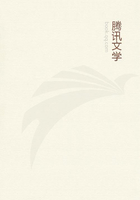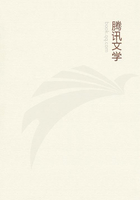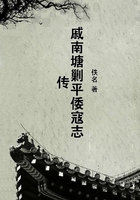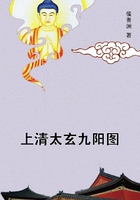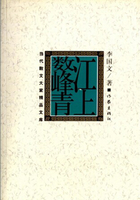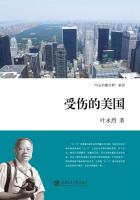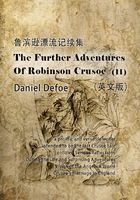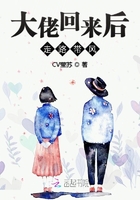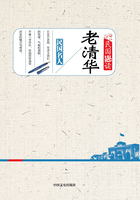[218] Oldenberg: Buddha; translated by W. Hoey, London, 1882, p.
127.
We find accordingly that as ascetic saints have grown older, and directors of conscience more experienced, they usually have shown a tendency to lay less stress on special bodily mortifications.
Catholic teachers have always professed the rule that, since health is needed for efficiency in God's service, health must not be sacrificed to mortification. The general optimism and healthy-mindedness of liberal Protestant circles to-day makes mortification for mortification's sake repugnant to us. We can no longer sympathize with cruel deities, and the notion that God can take delight in the spectacle of sufferings self-inflicted in his honor is abhorrent. In consequence of all these motives you probably are disposed, unless some special utility can be shown in some individual's discipline, to treat the general tendency to asceticism as pathological.
Yet I believe that a more careful consideration of the whole matter, distinguishing between the general good intention of asceticism and the uselessness of some of the particular acts of which it may be guilty, ought to rehabilitate it in our esteem.
For in its spiritual meaning asceticism stands for nothing less than for the essence of the twice-born philosophy. It symbolizes, lamely enough no doubt, but sincerely, the belief that there is an element of real wrongness in this world, which is neither to be ignored nor evaded, but which must be squarely met and overcome by an appeal to the soul's heroic resources, and neutralized and cleansed away by suffering. As against this view, the ultra-optimistic form of the once-born philosophy thinks we may treat evil by the method of ignoring. Let a man who, by fortunate health and circumstances, escapes the suffering of any great amount of evil in his own person, also close his eyes to it as it exists in the wider universe outside his private experience, and he will be quit of it altogether, and can sail through life happily on a healthy-minded basis. But we saw in our lectures on melancholy how precarious this attempt necessarily is. Moreover it is but for the individual; and leaves the evil outside of him, unredeemed and unprovided for in his philosophy.
No such attempt can be a GENERAL solution of the problem; and to minds of sombre tinge, who naturally feel life as a tragic mystery, such optimism is a shallow dodge or mean evasion. It accepts, in lieu of a real deliverance, what is a lucky personal accident merely, a cranny to escape by. It leaves the general world unhelped and still in the clutch of Satan. The real deliverance, the twice-born folk insist, must be of universal application. Pain and wrong and death must be fairly met and overcome in higher excitement, or else their sting remains essentially unbroken. If one has ever taken the fact of the prevalence of tragic death in this world's history fairly into his mind--freezing, drowning entombment alive, wild beasts, worse men, and hideous diseases--he can with difficulty, it seems to me, continue his own career of worldly prosperity without suspecting that he may all the while not be really inside the game, that he may lack the great initiation.
Well, this is exactly what asceticism thinks; and it voluntarily takes the initiation. Life is neither farce nor genteel comedy, it says, but something we must sit at in mourning garments, hoping its bitter taste will purge us of our folly. The wild and the heroic are indeed such rooted parts of it that healthy-mindedness pure and simple, with its sentimental optimism, can hardly be regarded by any thinking man as a serious solution. Phrases of neatness, cosiness, and comfort can never be an answer to the sphinx's riddle.
In these remarks I am leaning only upon mankind's common instinct for reality, which in point of fact has always held the world to be essentially a theatre for heroism. In heroism, we feel, life's supreme mystery is hidden. We tolerate no one who has no capacity whatever for it in any direction. On the other hand, no matter what a man's frailties otherwise may be, if he be willing to risk death, and still more if he suffer it heroically, in the service he has chosen, the fact consecrates him forever.
Inferior to ourselves in this or that way, if yet we cling to life, and he is able "to fling it away like a flower" as caring nothing for it, we account him in the deepest way our born superior. Each of us in his own person feels that a high-hearted indifference to life would expiate all his shortcomings.
The metaphysical mystery, thus recognized by common sense, that he who feeds on death that feeds on men possesses life supereminently and excellently, and meets best the secret demands of the universe, is the truth of which asceticism has been the faithful champion. The folly of the cross, so inexplicable by the intellect, has yet its indestructible vital meaning.
Representatively, then, and symbolically, and apart from the vagaries into which the unenlightened intellect of former times may have let it wander, asceticism must, I believe, be acknowledged to go with the profounder way of handling the gift of existence. Naturalistic optimism is mere syllabub and flattery and sponge-cake in comparison. The practical course of action for us, as religious men, would therefore, it seems to me, not be simply to turn our backs upon the ascetic impulse, as most of us to-day turn them, but rather to discover some outlet for it of which the fruits in the way of privation and hardship might be objectively useful. The older monastic asceticism occupied itself with pathetic futilities, or terminated in the mere egotism of the individual, increasing his own perfection.[219]
But is it not possible for us to discard most of these older forms of mortification, and yet find saner channels for the heroism which inspired them?

